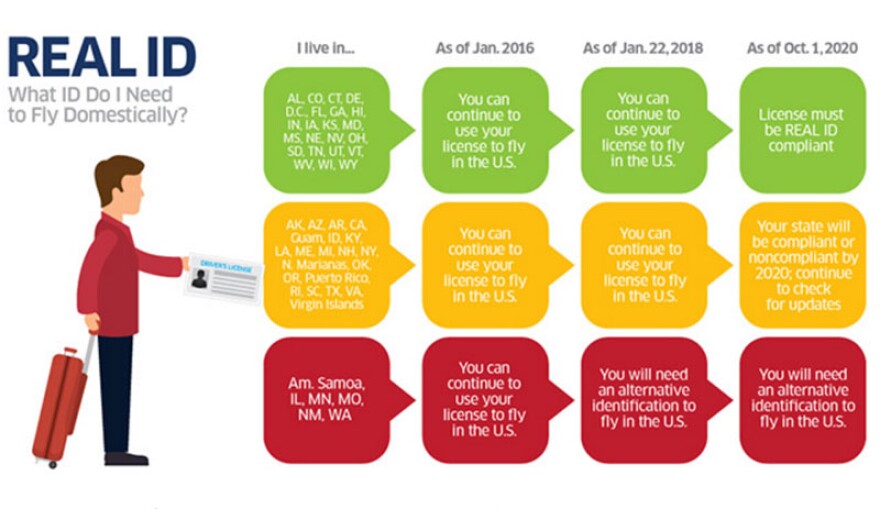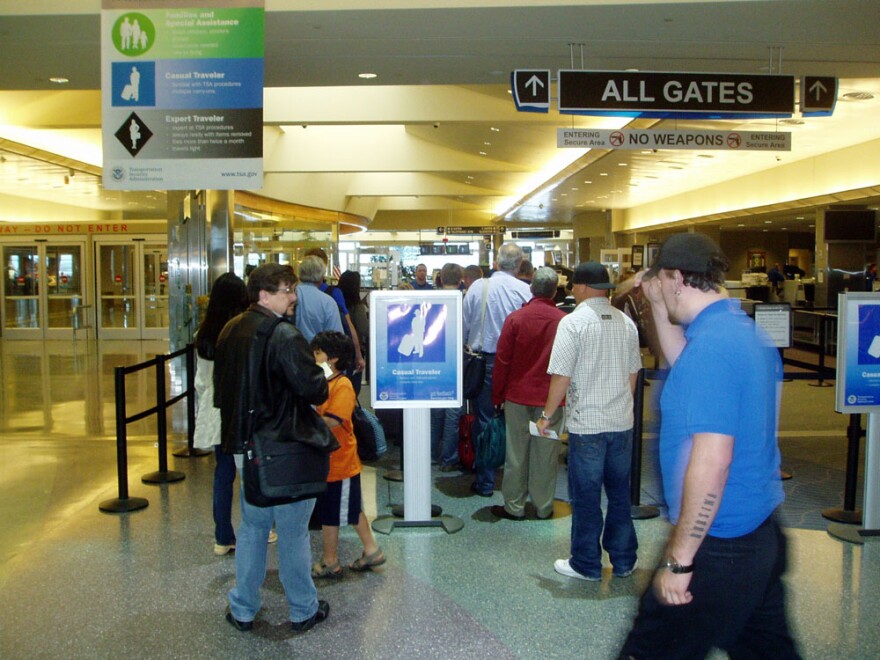A vote by Idaho lawmakers Monday showed Northwest states are moving toward full compliance with driver's license security upgrades demanded by Congress more than a decade ago.
The onus is on Idaho, Washington and Oregon to make changes so that a regular driver's license can still be used to board an airplane after next year. The three states - and more than a dozen others - initially rebelled against the federal mandate known as the REAL ID Act. But the states have since modernized on their own to prevent fraud and verify identities better.
Idaho House Transportation Committee chair Joe Palmer, R-Meridian, said earlier fears involving costs and privacy have gone away.
"I am comfortable with it because I believe it is just more secure,” Palmer said. “I don't have any problems with the thought that the federal government is trying to track us because I don't see any way that they can track us any more with this than any other way they can."
Idaho, Oregon and Washington still need to repeal state laws dating to 2007-09 that direct state agencies not to comply with the federal security act. Palmer's committee started the ball rolling on that by sending a repeal measure to the Idaho House floor Monday.
There's an added complication in Washington state, where lawmakers have to authorize licensing examiners to ask for proof of legal U.S. residency or finesse that some other way.
In testimony presented to the Oregon House of Representatives last month, Oregon DMV Administrator Tom McClellan said his state meets all but seven of the 42 provisions of the REAL ID Act requirements. He said the main hurdle remaining is to create a system to capture and store digital images of birth certificates, passports or immigration papers that prove identity and legal presence.
McClellan said legislative action would be needed. That appears unlikely to occur during the short 2016 session of the Oregon Legislature.
In Boise on Monday, Palmer said Idaho's ID card issuance process was "basically there" in terms of achieving federal compliance except for a similar issue to Oregon pertaining to verification of birth certificates of Idahoans who already hold a driver's license.
Washington State Department of Licensing spokesman Brad Benfield said his agency has seen a surge in demand for its "Enhanced Driver License," which it began offering in 2008 to applicants who provide extra documentation of identity and U.S. citizenship.
In an interview with public radio Monday, Benfield said the number of weekly issuances of Enhanced Driver Licenses has doubled this winter compared to before last October, when Washington state's last extension from the U.S. Department of Homeland Security on REAL ID compliance ran out. The high-tech license is recognized by the federal government for air travel and can substitute for a passport at U.S. land border crossings.
States considered by the DHS to be "non-compliant" have until January 2018 to meet the heightened ID security standards. After that date, DHS said regular driver's licenses and state ID cards issued by those states will not be accepted at Transportation Security Administration checkpoints as identification to board commercial flights.
Military installations in the Pacific Northwest, the Hanford Nuclear Site, Idaho National Laboratory and some other sensitive federal facilities have already begun to demand REAL ID-compliant identification or presentation of a second form of identification. Alternative forms of identification that are presently REAL ID-compliant include passports, U.S. military ID, federally-recognized tribal photo IDs or airline or airport-issued ID.



